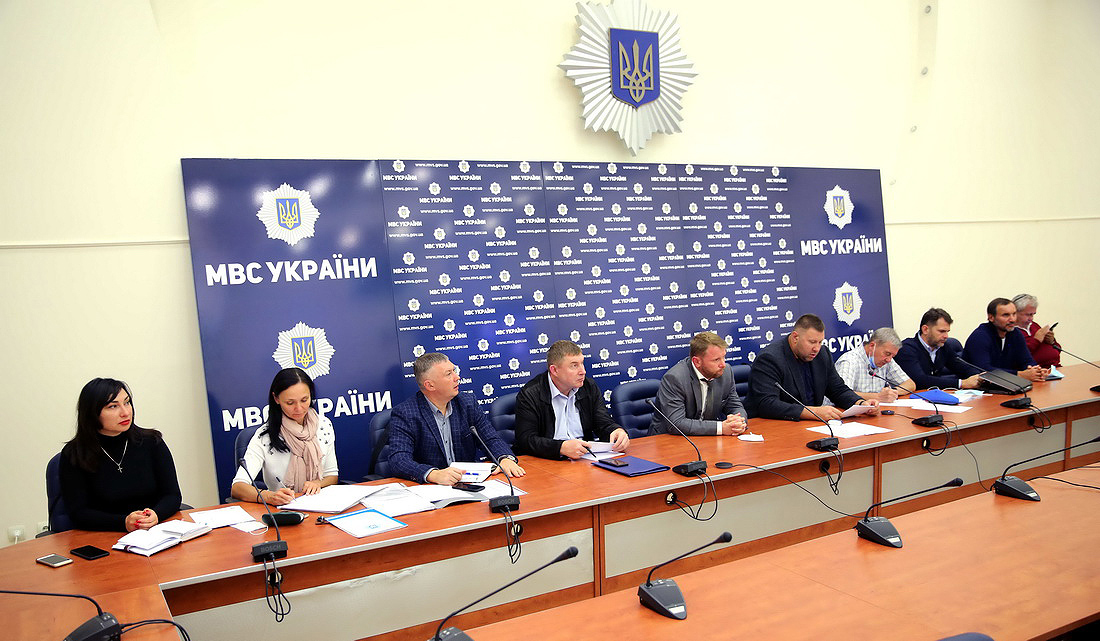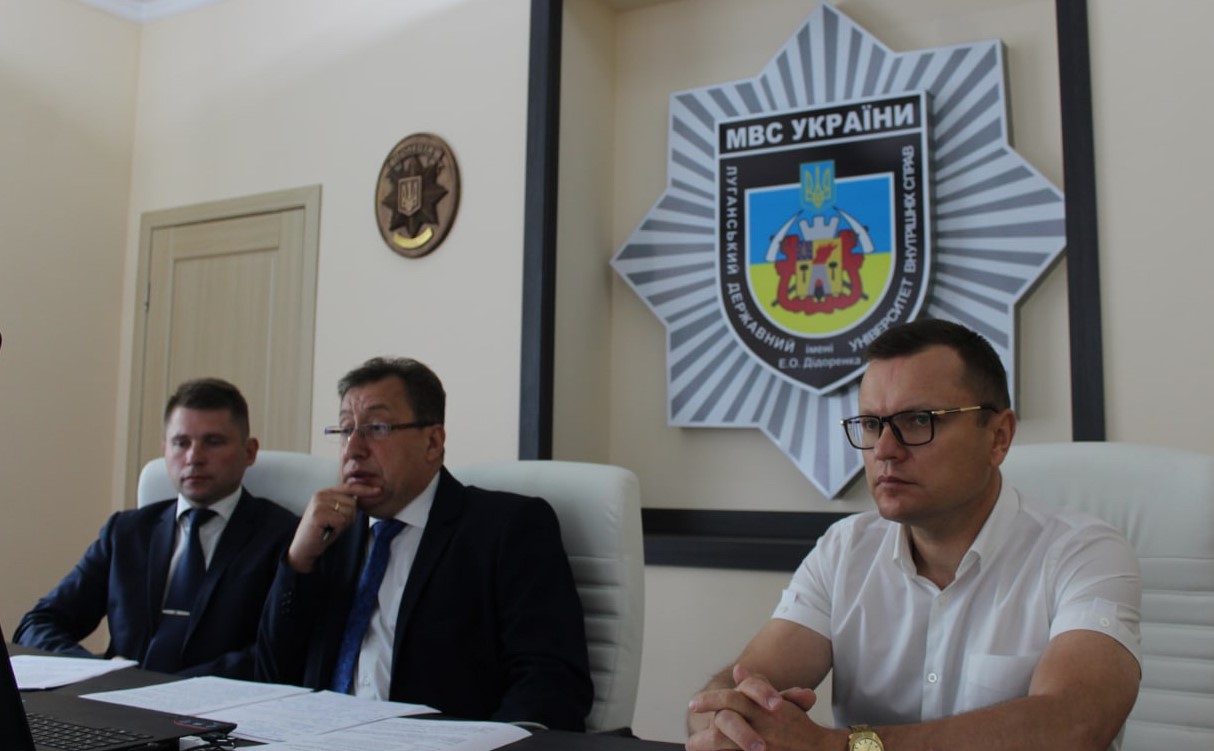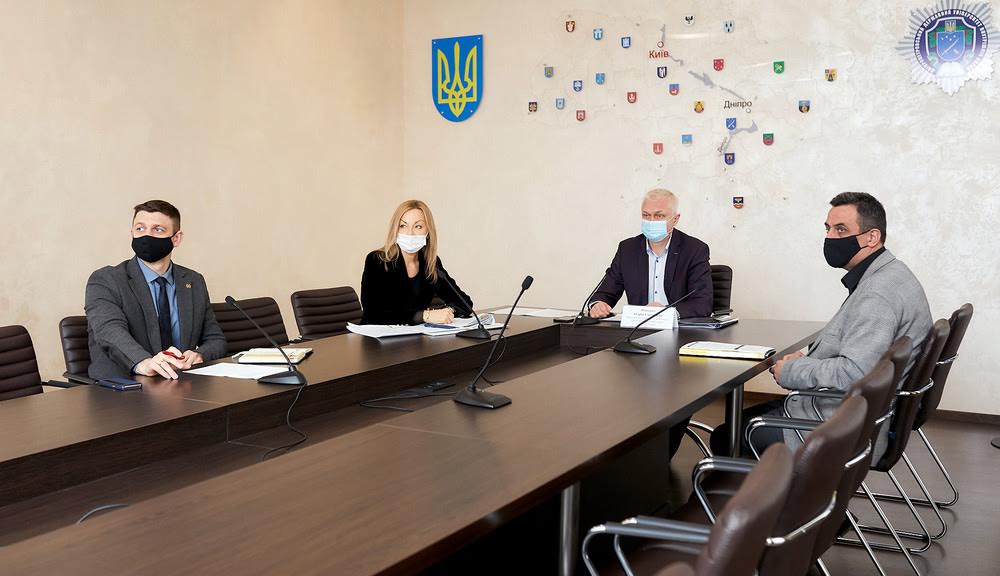Systematization of state anti-corruption policy is a common task of scientists and practitioners

About 500 participants joined the V International Scientific and Practical Conference “Implementation of State Anti-Corruption Policy in the International Dimension” in order to discuss the legislative and practical aspects of the fight against corruption. The two-day event, organized in an online format on the basis of the National Academy of Internal Affairs, began its work today, December 9.
The conference was organized by the Ministry of Internal Affairs of Ukraine, the Public Council under the Ministry of Internal Affairs, the National Academy of Internal Affairs, the Consultative Mission of the European Union in Ukraine, the National Academy of Legal Sciences of Ukraine, the Public Union “Center for Prevention and Anti-Corruption”.
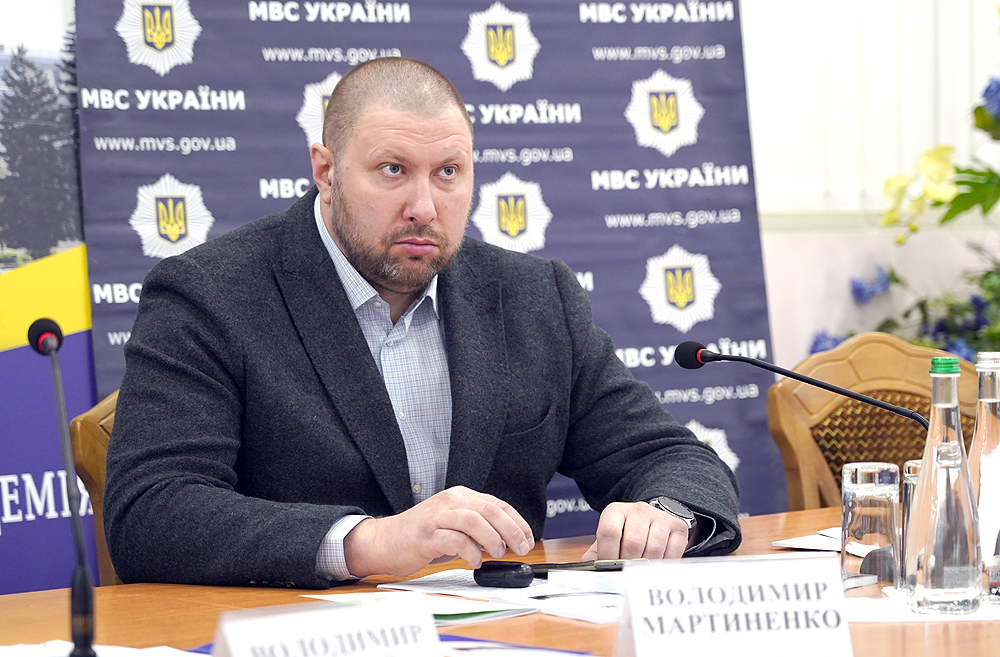
According to Volodymyr Martynenko, Chairman of the Public Council at the Ministry of Internal Affairs, this conference is the final event, which was preceded by three stages — international scientific and practical conferences held in higher education institutions of the Ministry of Internal Affairs in Lviv, Dnipro and Kharkiv. It is worth noting that more than 550 participants joined these anti-corruption forums, the geography of the events covered 14 countries.
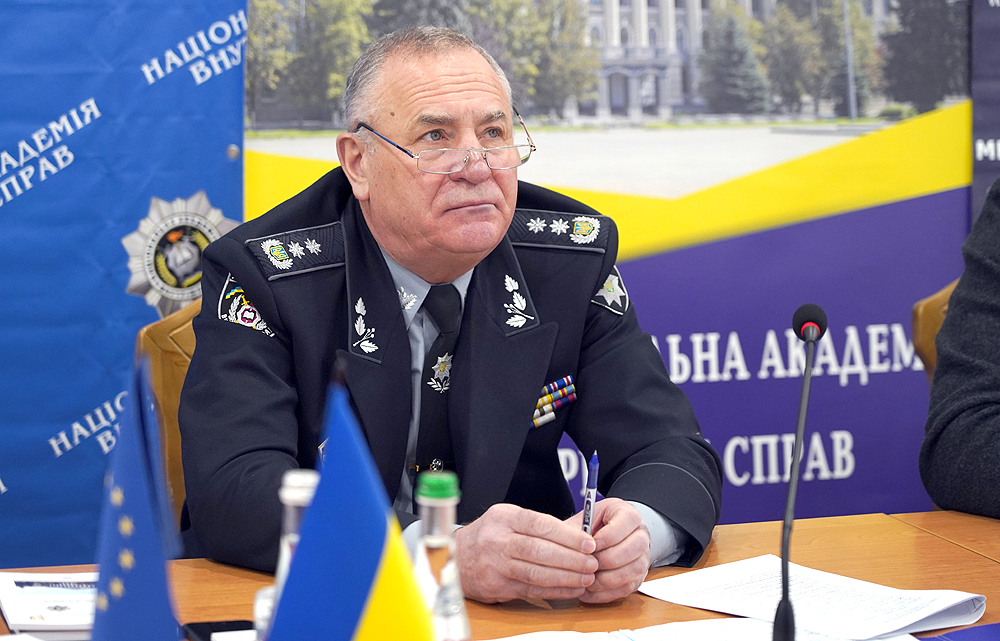
NAVS Rector Volodymyr Cherney expressed his gratitude to the co-organizers, representatives of international organizations, leading educational and scientific institutions, central executive bodies for actively participating in the work of the conference, because the fight against corruption continues to be one of the most pressing issues in the country.
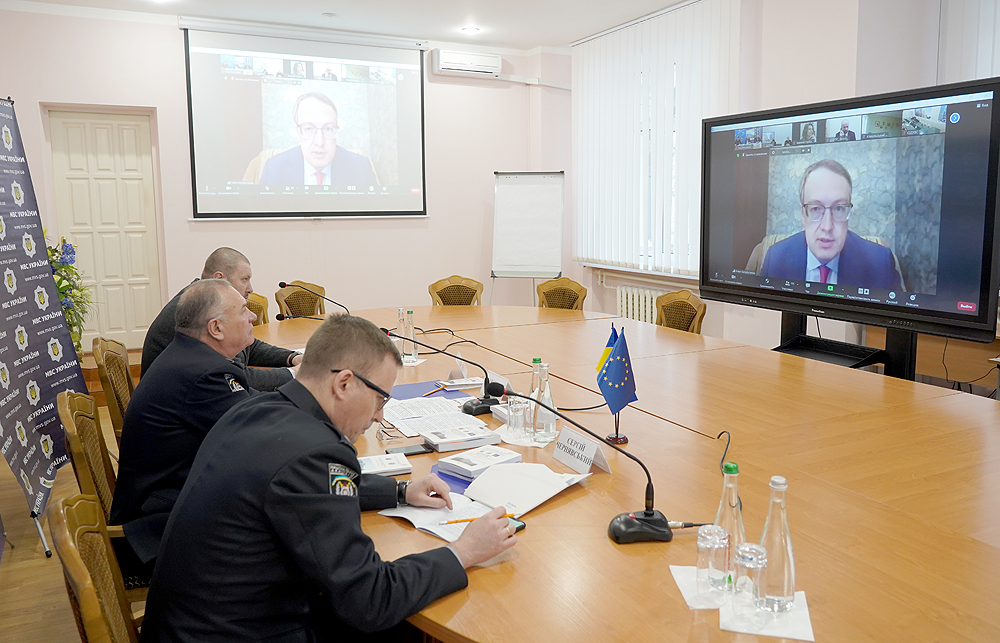
Deputy Minister of Internal Affairs of Ukraine Anton Gerashchenko stressed that the fight against corruption should be based on an integrated approach, which will include forming the rejection of corruption from school and student age.
“We need systemic reform. A successful example of such a reform, which reduces corruption by orders of magnitude, is the introduction of the Ministry of Internal Affairs of the reform of the patrol police, which replaced the corrupt traffic police,” Anton Gerashchenko is convinced.
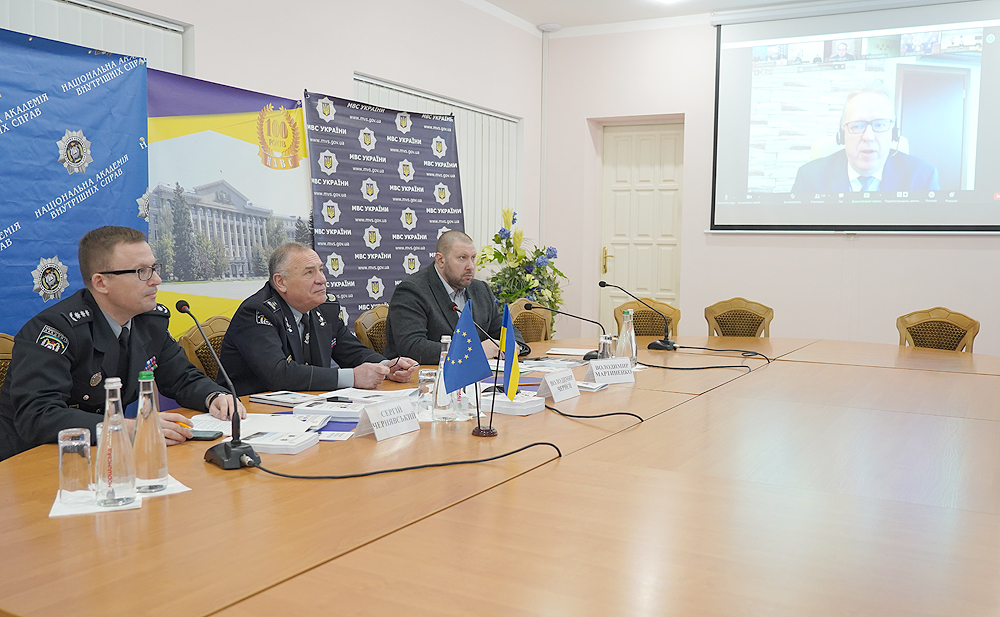
According to Antti Juhani Hartikainen, Head of the European Union Advisory Mission to Ukraine, the Mission cooperates with law enforcement agencies, in particular the Ministry of Internal Affairs and the National Police, on anti-corruption initiatives. And, despite the pandemic situation, the IMC will continue to participate in activities, conduct trainings, etc. to exchange anti-corruption experience and generate new ideas in the field of anti-corruption.
President of the National Academy of Legal Sciences of Ukraine Oleksandr Petryshyn stressed the need for a thorough scientific approach in combating corruption. He noted that the participants of the conference face a difficult and urgent task — to develop effective mechanisms to combat corruption that will fill gaps and correct shortcomings in legislation.
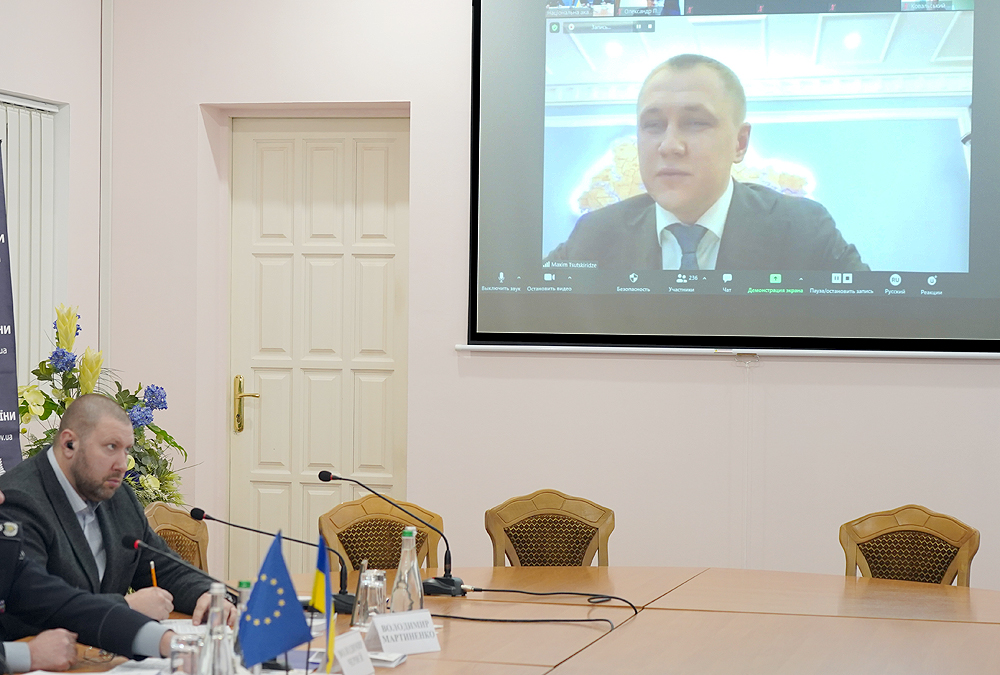
In his turn, Maxim Tsutkiridze, Deputy Head of the National Police of Ukraine — Head of the Main Investigation Department, noted that the public pays significant attention to corruption issues, which, according to sociological studies, exceeds interest in criminal crime. He said that during 10 months of this year, NPU investigators sent to court criminal proceedings for more than 2.8 thousand corruption offenses, almost 1.5 thousand criminal offenses are serious or particularly serious. At the same time, the investigators showed the dynamics of the growth of the number of investigated proceedings compared to the same period last year.
During the conference, Volodymyr Martynenko reported on the results of a citizens' survey on corruption, organized jointly with the ECSC in preparation for the conference. More than 1000 people took part in the survey. It should be noted that more than half of the respondents noted that the level of corruption in the Ministry of Internal Affairs has been decreasing in recent years.
“Such a survey is a real slice, which showed certain positive changes and, at the same time, outlined those points that need to be worked on,” said the head of the Public Council under the Ministry of Internal Affairs.
He also said that in the future, together with the European Commission, measures to prevent corruption will be carried out. In addition, the implementation of the recommendations developed by the participants of these events will be monitored and tracked.
During the two days, scientists, public sector managers, experts and representatives of the public will exchange experiences, developments, proposals to develop recommendations for combating corruption, which continues to be a deterrent for the development of the country. Recommendations will be sent to the competent authorities.
Department of Communications of the Ministry of Internal Affairs




